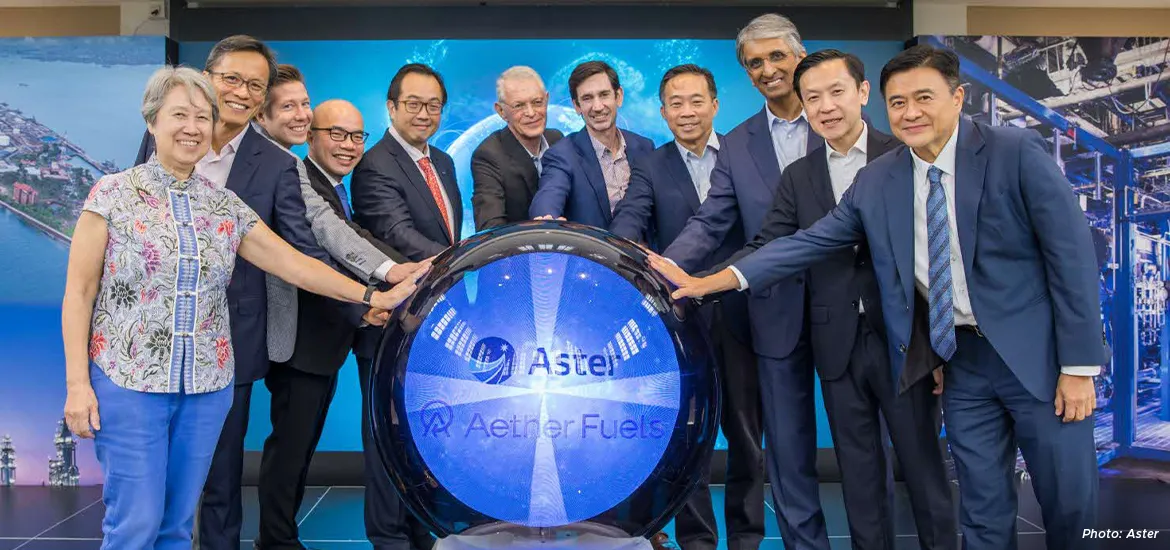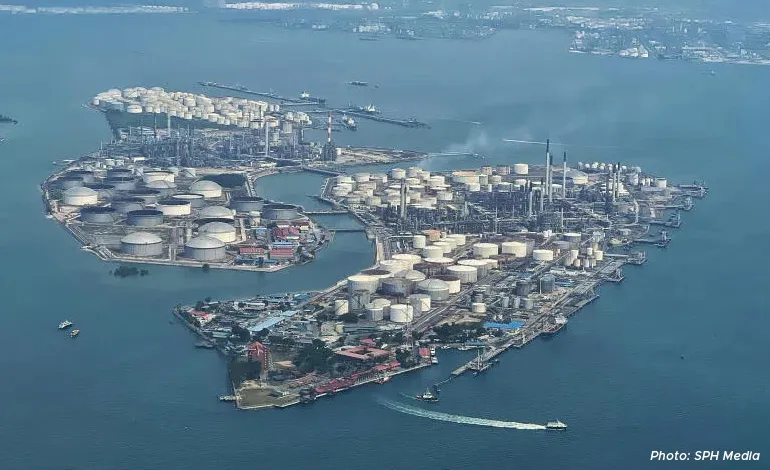Aster will provide Aether with the waste carbon feedstock for fuel production, as well as renewable power, utilities, and site support.
The output will be certified by the Carbon Offsetting and Reduction Scheme for International Aviation, a global initiative to decarbonise the aviation sector.
“Tonnes of interest”
Project Beacon will produce up to 50 barrels of fuel a day, or 2,000 tonnes a year. This comprises 1,600 tonnes of sustainable aviation fuel and 400 tonnes of sustainable naphtha.
There will also be 24 full-time jobs created for the operation of the plant, said Aether’s founder and chief executive Conor Madigan. The startup separately plans to grow its Singapore headcount to 30, from two at present.
Based in Singapore and Chicago, Aether was incubated and funded in 2022 by Xora, a deep-tech venture firm backed by Temasek.
Madigan noted that there is a shortage of used cooking oil to produce sustainable aviation fuel.
Aether aims to overcome this problem through its technology, which allows the fuel to be made from waste gases and other forms of waste carbon. With Project Beacon, the input will be gases from Aster’s refining processes.
“(That) allows us to get the feedstock we need in a super-steady stream and consistent flow… And so it really makes this project super simple. We have a rock-solid feedstock supply, and it allows us to demonstrate a route to making fuels that we think is quite scalable,” he said.
In February, Singapore Airlines signed an agreement with Aether to potentially source sustainable aviation fuel from the startup.
Asked if the carrier will purchase the fuel from Project Beacon, Madigan would only say: “It is our intention that the offtake for this plant will be to a major airline. We hope to provide updates on that down the line.”
He also noted that there is “tonnes of interest throughout Asia” for offtake, especially as more governments mandate the use of the fuel.
Singapore, for instance, aims for sustainable aviation fuel to account for one per cent of all jet fuel used at Changi and Seletar airports in 2026, rising to three to five per cent by 2030.
The Republic has set up a central buyer for sustainable aviation fuel, while also introducing a levy for the fuel ranging from S$1 to S$41.60 per airline ticket.








